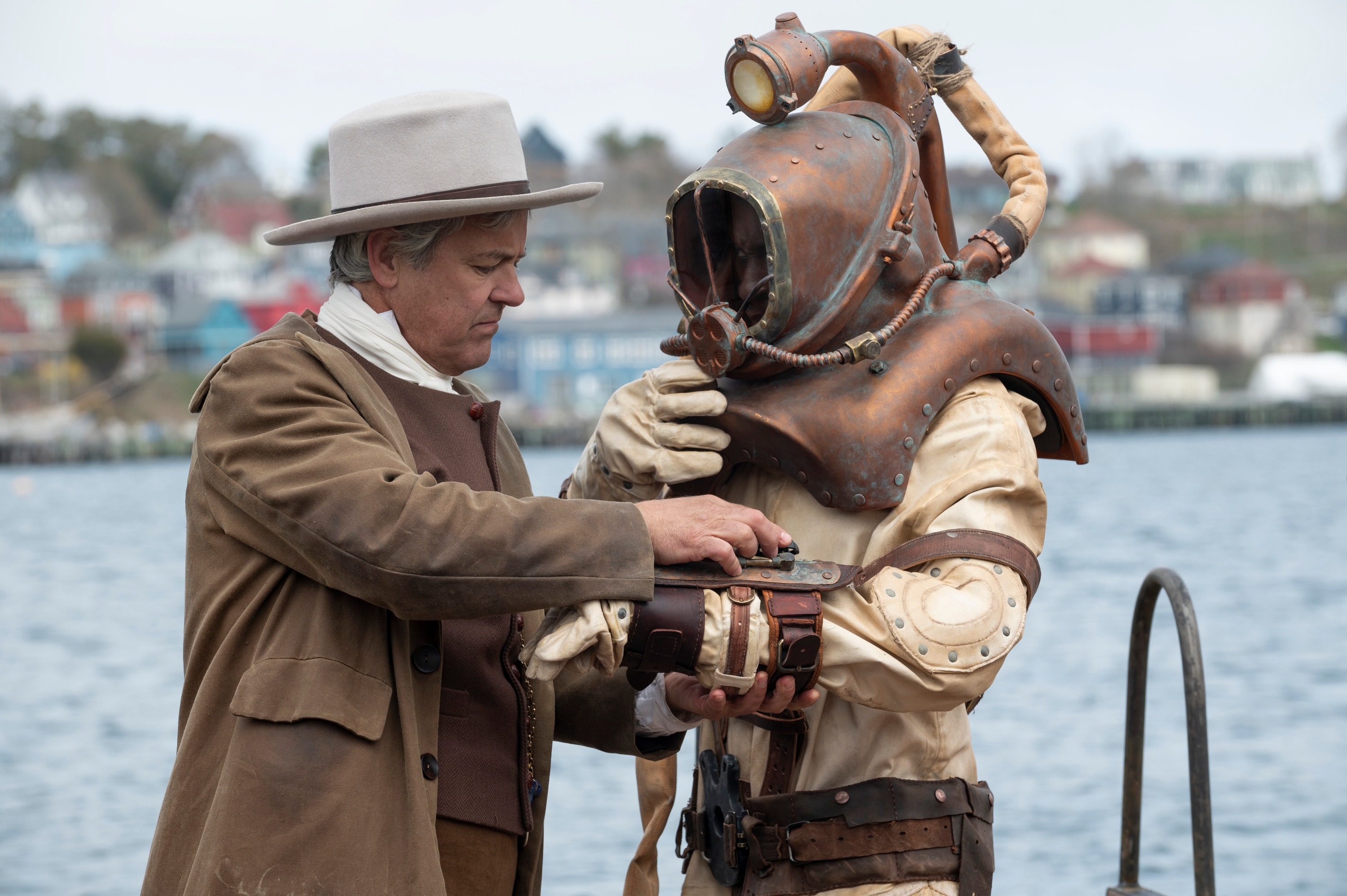Have you ever wondered how far and wide the dreams were for Black individuals in the 19th century? Well, wonder no more as the TV series adaptation of Washington Black has finally hit Disney+.
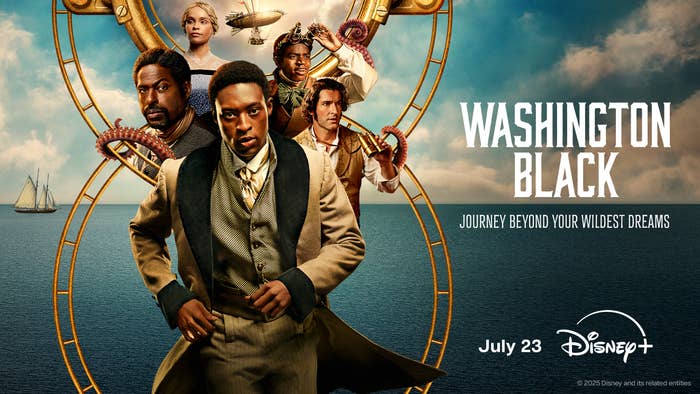
Based on Esi Edugyan’s highly popular book, Washington Black follows the story of 11-year-old super brain George Washington Black, as he dreams of a life outside of the Barbados plantation he was raised on when he meets an inventor. Starring Ernest Kingley Jnr, Tom Ellis, and the now 11-time Emmy nominee, Sterling K Brown, Washington Black teaches you how to chase your dreams no matter what your circumstances.
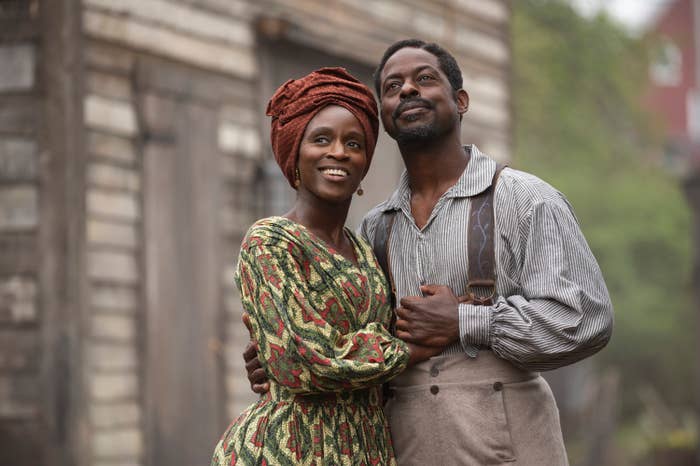
Speaking to both Ernest and Sterling, we discuss the emotional weight of portraying history through a modern lens and the delicate balance of embodying joy while telling stories rooted in trauma.
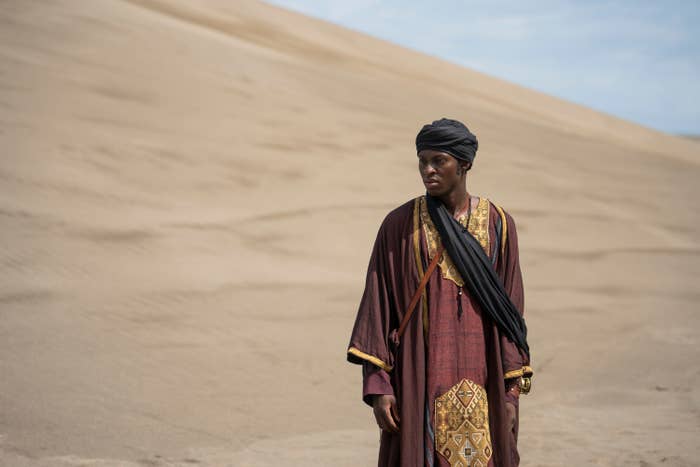
This show is a great reminder of what it's like to be a dreamer, why it’s important to be a dreamer, but also why it’s so dangerous for Black people to dream. How do you both, as Black men, ensure your dreams are kept alive?
Ernest: I think it’s in the company I keep. I try to surround myself with friends and family who bring me joy and also have that kind of envisioning for their lives and their dreams; therefore, we fuel each other in this continuous cycle. Company is really important because there’s that saying that’s like “you’re the average of your five friends”, and I don’t mean in terms of materialistic things, I mean mentality. You can be the average mentality of five friends who think everything’s rubbish, and this is going to be my life forever. So company is really important to me.
Sterling: Junior, that is a great answer. You’ve been here before, young brother. I couldn’t agree more. The company you keep, the energy they put out into the world – it's contagious. You have to be very careful about the people that you allow proximity to you because you can take on, whether you know it or not, their energy. The goal is hopefully you vibrate up and try to pull people up, but every once in a while you can feel a little dip, [however] if you get around somebody else who’s like you, you guys kinda just keep going up together.
So what I’m hearing is you’re both empaths because similarly, if someone comes in a room with an angry spirit, now all of a sudden my spirit is angry and I need everyone to find a calm...
Sterling: Ada, sometimes I sense that, and sometimes I politely excuse myself if I don’t want to be in this space, or I try to come up to that person and be like “hey, how are you doing?” and give them a smile to see if that will change the energy.
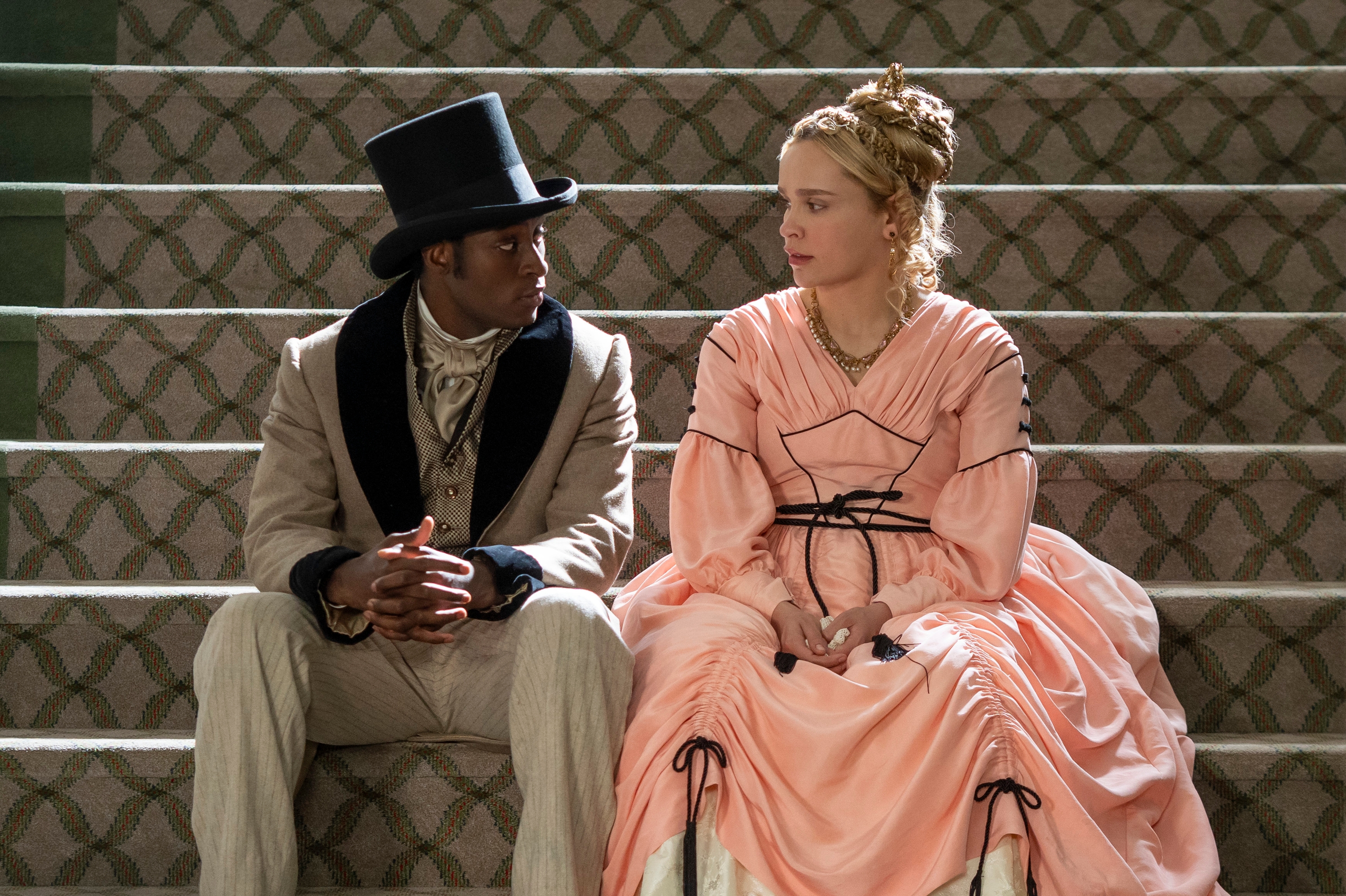
Onto something you’ve both mentioned: keeping the right people around you. This series speaks a lot about protecting community. Helping your kin, lifting them up, and protecting them as much as you can, up to where you can without sacrificing yourself. In today's landscape, we speak a lot about community being lost, but was there anything you learnt while making this series on how to enrich a community?
Sterling: Goodness gracious, that’s a good one. I would say that my sense of community expanded while doing the project, working with people from the UK whose parents are either from the island (Barbados) or from Africa, and me being from the US. There was something beautiful about just being with Black folks and not feeling like I had to be like “well they like this and they like this” We were all sort of like “well we’re like this” [interlocks his fingers]. You know what I’m saying? It was a really beautiful experience for me.
Ernest: I think there was something about filming in Canada and in Halifax, and getting to know the Afro-Nova Scotian community. It felt like it took a really short span of time to feel at home there. It made me think, and I can’t speak for everyone, but sometimes, when communities are being formed, there’s a stage of sussing a person out, like, are they okay, and are they like you? Whereas we came to Canada, and I felt like we were welcomed with open arms. Even when I was walking by myself, exploring, and no one knew who I was, and I was meeting new people, I was instantly welcomed with open arms and love. I feel like I learnt that there doesn’t need to be this [guardedness] and you can afford to be more vulnerable when approaching opening up a community.
So the rumours are true, Canadians are really friendly.
Ernest: I used to think it was like a silly stereotype, but I think the large majority of people I met in Canada, like no one is perfect, but the large majority of people I met were very cool.
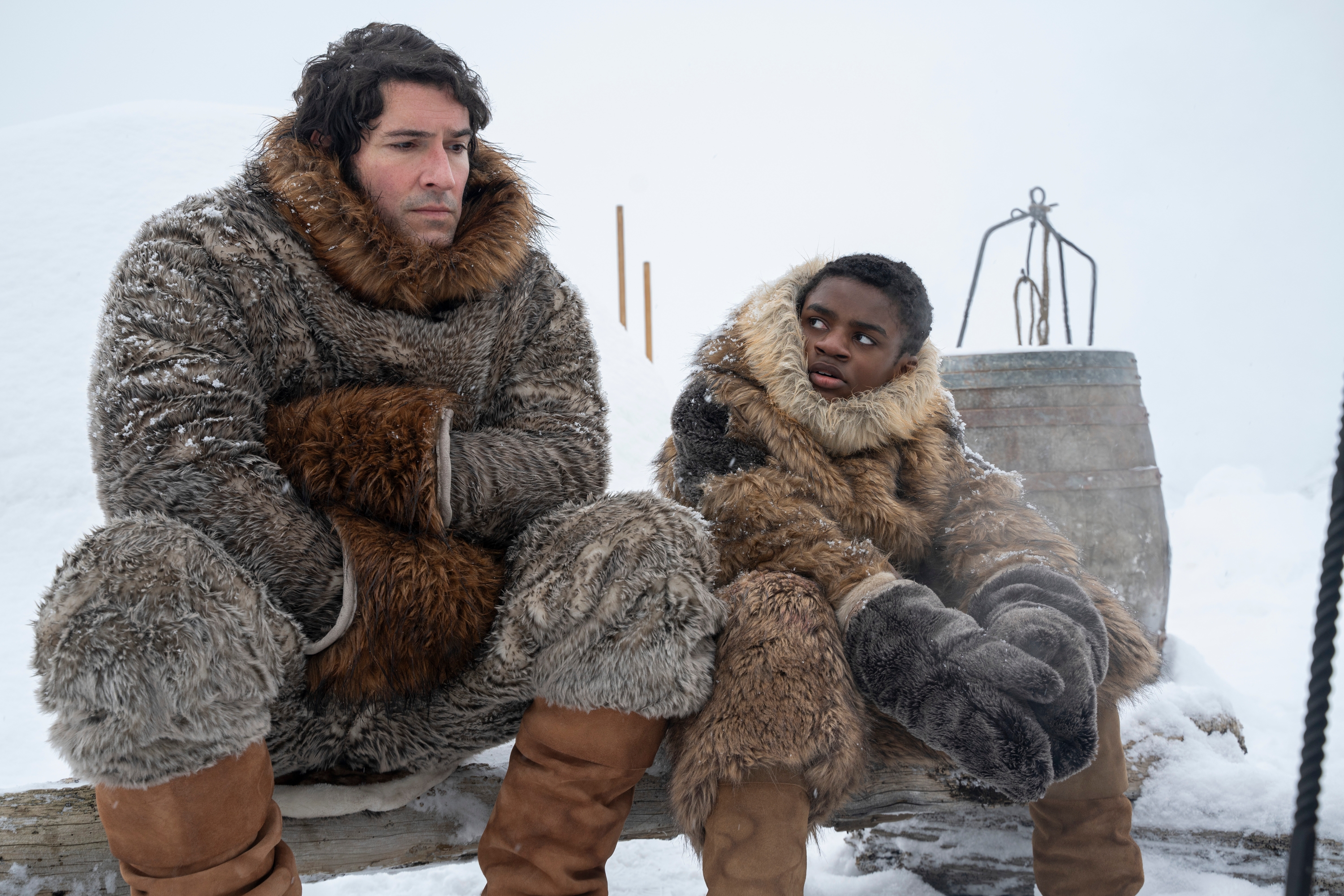
The show delves into our collective traumatic history as Black individuals as it’s set in the 19th century. Was there anything you learnt about yourself while having to put yourself into that mindset?
Ernest: For me, it kind of brought up the whole interconnectedness of Blackness. You have these people who are coming from West Africa to Barbados, who have a kind of joint spirituality of who they're praying to and worshipping. Their Gods have their origins in Nigeria – it made me feel more connected to my ancestors than I thought I could be, and that was really beautiful for me.
Sterling: I worked in Charleston, South Carolina, which is where there's a port in Mount Pleasant where 40 to 50% of all slaves that entered the United States came through, and there's a particular sort of culture called Gullah culture that is still present on the islands outside of Charleston, South Carolina. As I was thinking about the character of Medlen, I was like, I think he’s going to come from this place and talk in a very particular way. As I got to Nova Scotia and I would meet the Black folks there, I was like “Wait man, were you Gullah?” and they’re always like “nah man, we’re from here, I’m straight from Halifax” and I’d be like “you sound like the people in South Carolina”. It was this mind-blowing thing, an actual auditory history of the migration from the South up through the North to freedom. I could hear it and I was present to it. So, as I was telling this story about a young man trying to find his freedom so that he could fully express himself. I actually saw the evidence of the Underground Railroad. I can hear you started down here, and now you’re up here. That was pretty cool.
